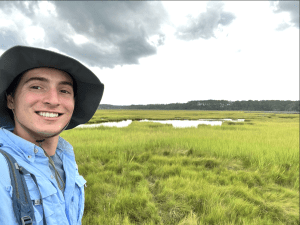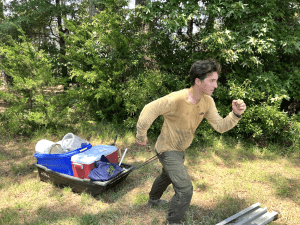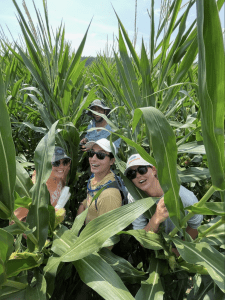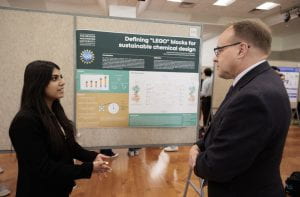The following blog post was written by fellow UHPer and Spring 2024 SURE Award recipient, Radha Varadan (Biological Sciences and Dance, ’24). Read on about Radha’s research and how she plans to utilize the SURE Award funding to further expand upon her experience!
There are several iconic symbols that comprise the DC-Metro region; that define what it means to be a part of the Washington, D.C. community: the Potomac and Anacostia rivers; the gleaming monuments at night; even the protests and demonstrations that are so unique to the nation’s capital.
However, intertwined between these facets of life exists a far prettier truth. Washington, D.C. and the surrounding counties demonstrate some of the largest racial and socioeconomic disparities in terms of life expectancy, unemployment, and– arguably most critically– access to comprehensive healthcare and education.
The lack of access to comprehensive healthcare has several implications, notably with regards to cancer and cancer screening. It is no secret that vast racial disparities exist both in healthcare access as well as in disease survival rates. The American Cancer Society has years of published data, indicating that while progress has been made in advocating for these communities, Black individuals still have the highest cancer-related death rate and lowest overall 5-year cancer survival rate. In the same vein, the annual rate of lung cancer screening in Washington, DC is a mere 1.4%, with these rates even lower in low-income wards.
It is an irrefutable truth that there are systemic barriers in place that prevent equal access to healthcare, and education related to health promotion.
My project, “Where Advocacy and Healthcare Intersect: Promoting Lung Cancer Screening and Education in Low-Income Communities” seeks to collect both empirical and qualitative data regarding the number of individuals who are at a very high risk for developing lung cancer, but who experience systemic barriers preventing them from seeking treatment. As a leader of the GWU chapter of the American Lung Cancer Screening Initiative, this project aligns with the guiding principle that true change begins at the community level, and that healthcare education is healthcare empowerment.
As such, the funding from the SURE award goes towards taking one step closer to healthcare equity. The heart of this project lies in community canvassing and having genuine community conversations about the factors that contribute to lung cancer development. To this end, the SURE award has allowed my team to purchase basic medical equipment to better assess the individuals that we screen, and has supported our travel to these underserved communities. In this way, we have amassed volumes of data relating to age, gender, race, and smoking history that we have begun to translate into advocacy. Furthermore, we have been able to connect an even greater number of individuals to our partners at the GW Cancer Center and broaden our grassroots canvassing initiatives because of the SURE award.
The data that the SURE award has allowed myself and my team to collect has been– and will continue to be– shared with local political leaders, state senate members, and even national representatives that GW ALCSI has cultivated relationships with. To this end, we have successfully lobbied at the national level for numerous bills providing free cancer screening services, and to date, have connected over 100 high-risk community members with free cancer screening services.
It is my dream to see a world where every individual in our community has the right to a pain-free life, and we are one step closer to achieving this dream with the support of the SURE award.


Interested in applying for your own SURE Award funding? Find out more about the application process here!










